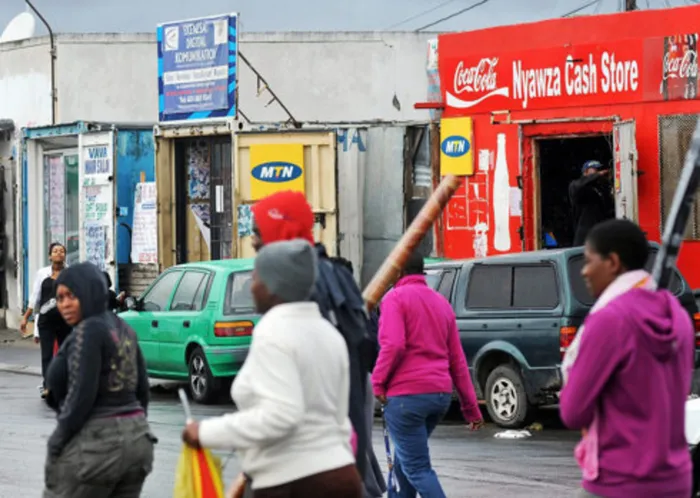
Emerging insights from the 2025 Township Customer Experience (CX) Report reveal that in a quest for survival, loyalty to brands is not merely a matter of sentiment but rather a calculated response driven by necessity.
Image: Independent Newspapers Archives
In a landscape increasingly marked by economic pressure, consumer behaviour in South Africa’s townships is undergoing a significant transformation.
Emerging insights from the 2025 Township Customer Experience (CX) Report reveal that in a quest for survival, loyalty to brands is not merely a matter of sentiment but rather a calculated response driven by necessity.
This compelling survey, released by Africa’s largest B Corp-certified digital agency, Rogerwilco, in collaboration with Field & Insights Africa and MoyaApp, provides an in-depth analysis of how changing economic conditions are reshaping the township consumer market.
The findings come against a backdrop of rising prices; Stats SA reported food inflation at a staggering 5.1% in June 2025, marking the highest level in over a year.
The costs of basic essentials have surged, with the Household Affordability Index revealing that the price of a standard basket of goods has climbed to R5,443.12, up 3.6% from the previous year. As the financial pressures mount, township households are being forced to make more deliberate purchasing decisions.
“Conventional marketing wisdom assumes loyalty is fixed. What our research shows is that loyalty in the township context is highly rational and deeply tied to survival,” states Mongezi Mtati, Senior Brand Strategist at Rogerwilco.
He continues, “When 39% of consumers switch brands due to rising prices, it’s not disloyalty; it’s a calculated move to stretch every rand.” This invites brands to reflect on their value propositions, move beyond sporadic promotions, and engage with communities authentically if they wish to remain relevant.
Over the course of five years, the Township CX Report has surveyed over 1,600 township residents across South Africa's nine provinces, painted against the broad canvas of price pressures, digital connectivity, and cultural traditions that shape the township economy.
Complementing this were insights from a MoyaApp survey involving 3,820 township inhabitants, uncovering how traditional savings and banking behaviours are responding to this survival-first landscape.
The report indicated a simultaneous rise in supermarket shopping habits, with 54% of respondents visiting these larger stores for bulk deals, while 29% reported increased patronage of spazas.
This dual-channel approach reflects strategic shopping patterns where consumers are optimising their grocery spending by leveraging both supermarket bulk pricing and the convenience of spaza shops for smaller, day-to-day purchases.
A promising development from the government’s spaza registration initiative, conducted from November 2024 to February 2025, has led to enhanced trust in these local stores.
The study found that 41% of township residents now express greater confidence in spazas, with nearly half favouring those operated by familiar owners, underscoring their role as essential neighbourhood hubs along with larger supermarkets.
Price sensitivity remains prevalent among township shoppers, yet it does not overshadow the importance of quality and location.
Among those who change stores in response to price increases, 25% deliberately consider price in relation to quality and location, while 13% reject cheaper options perceived as low-quality. This demonstrates a complex understanding of value that goes beyond mere cost.
Significantly, the data reveals a noteworthy 71% of township shoppers are now involved in a stokvel, a 39% increase from just two years ago. This rise suggests a growing recognition of the importance of collective savings as a stabilising force in the face of economic adversity.
Digital connectivity is also a matter of survival.
Findings show that 37% of residents allocate R251-R500 monthly for data, often prioritising connectivity over traditional essentials. While a substantial 40% of respondents have yet to embrace online shopping platforms, women aged 25-44 emerge as early adopters driving shifts toward mobile-first commerce.
“The township shopper is sophisticated, strategic, and pragmatic,” concludes Mtati. “Brands that meet them with trust, relevance, and respect for their realities will earn loyalty and build it for the long term.”
The complete 2025 Township CX Report is available for download at www.townshipcx.co.za, which houses all past reports since 2021, the Township Marketing Podcast (TMP) launched earlier this year, and other insightful content that influences the township economy.
BUSINESS REPORT